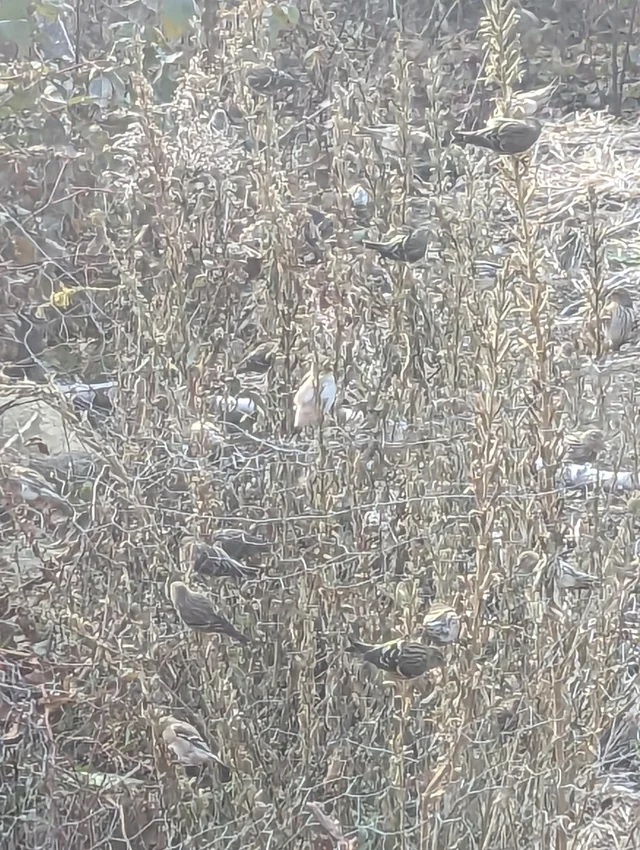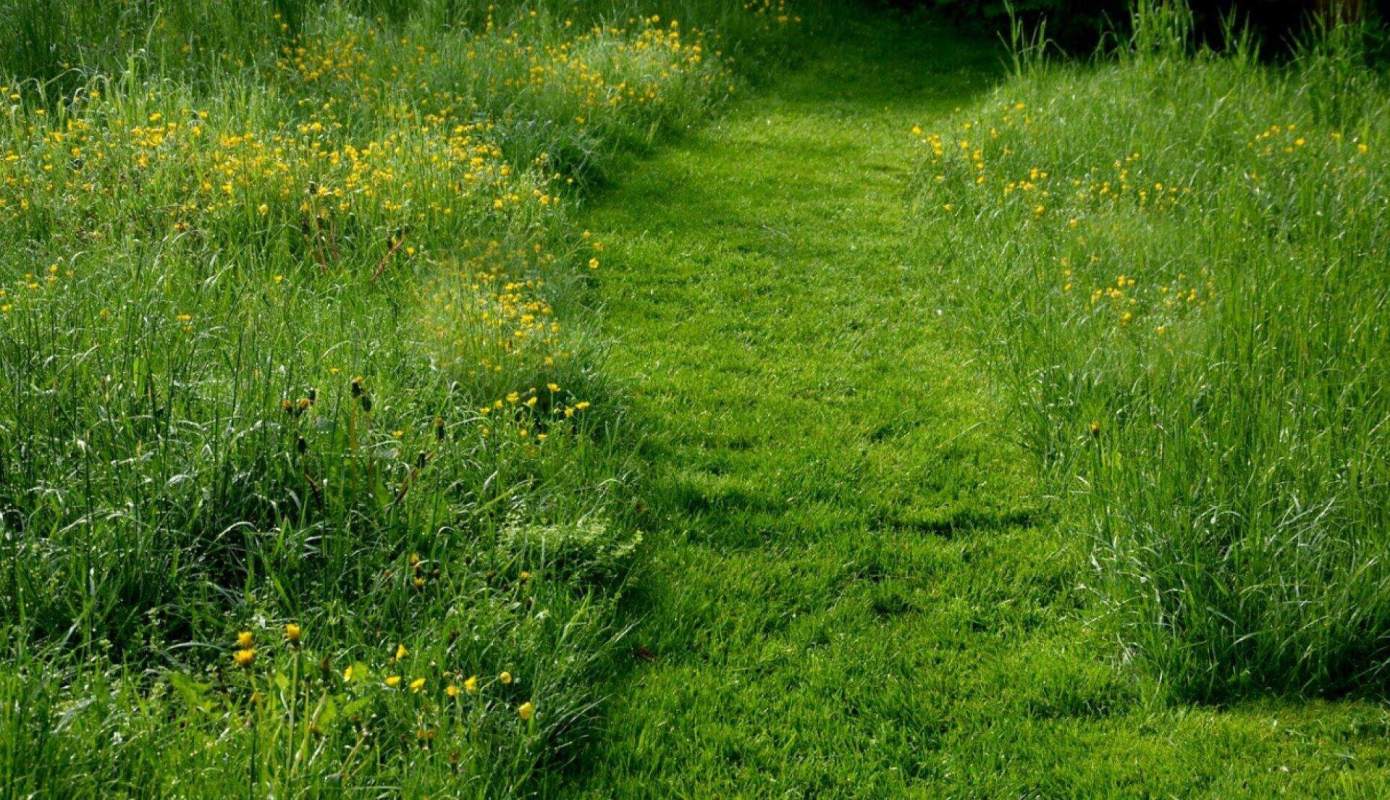The obsession with a bright emerald lawn has become as synonymous with the American Dream as a white picket fence. Since the late 1940s, a manicured landscape has been a matter of pride for homeowners.
However, many Americans are now realizing that luscious monoculture lawns aren't exactly ideal. In a Reddit forum committed to promoting and encouraging biodiverse lawns — natural or wildlife-friendly lawns — one follower shared how what he's doing is bringing all the birds to the yard.

"My neighbor wonders where all the birds are. They're in my unmowed yard feasting on seeds," he boasts with pride.
In the comments, the original poster confirms the seeds are from the evening primrose flower — an edible wildflower known for its medicinal qualities and a very popular home for caterpillars. Another remarkable feature is the flower responds to the buzzing of pollinator wings and temporarily sweetens its nectar for them.
Lawns are the most grown crop in the United States, and according to the Princeton Student Climate Initiative, they cover more than 40 million acres of land — and they're not for eating.
In some neighborhoods, it's a competition for curb appeal that requires a lot of maintenance, time, and money. Beyond that, it's costing our planet.
Every year across the country, lawns consume nearly 3 trillion gallons of water, 200 million gallons of gas, and 70 million pounds of pesticides, according to the Natural Resources Defense Council.
An article by paleBLUEdot says that running a gas-powered lawn mower for one hour produces 11 times more pollution than running the average new car for the same duration.
As more people become environmentally aware, grassless lawns are trending. Many people are cultivating vegetable gardens, native plants, and flowers instead.
These alternative lawns don't require a lawn mower, cutting down on carbon pollution. They also save on water, money, and maintenance time. It's a great way to encourage and foster biodiversity.
If you aren't quite ready to say goodbye to green grass, look into purchasing an electric lawn mower. Not only are they better for air quality, they're quieter and easier on the body due to their lighter weight.
People in the comments were impressed with the results of a biodiverse lawn.
"That's amazing!" one user exclaimed.
Another commented, "This past spring I took half of my suburban backyard and fenced it off for my chickens and bees and let it go relatively wild. Huge sunflower bushes popped up surrounded by native grasses, etc. Flowers everywhere."
Join our free newsletter for easy tips to save more, waste less, and help yourself while helping the planet.









